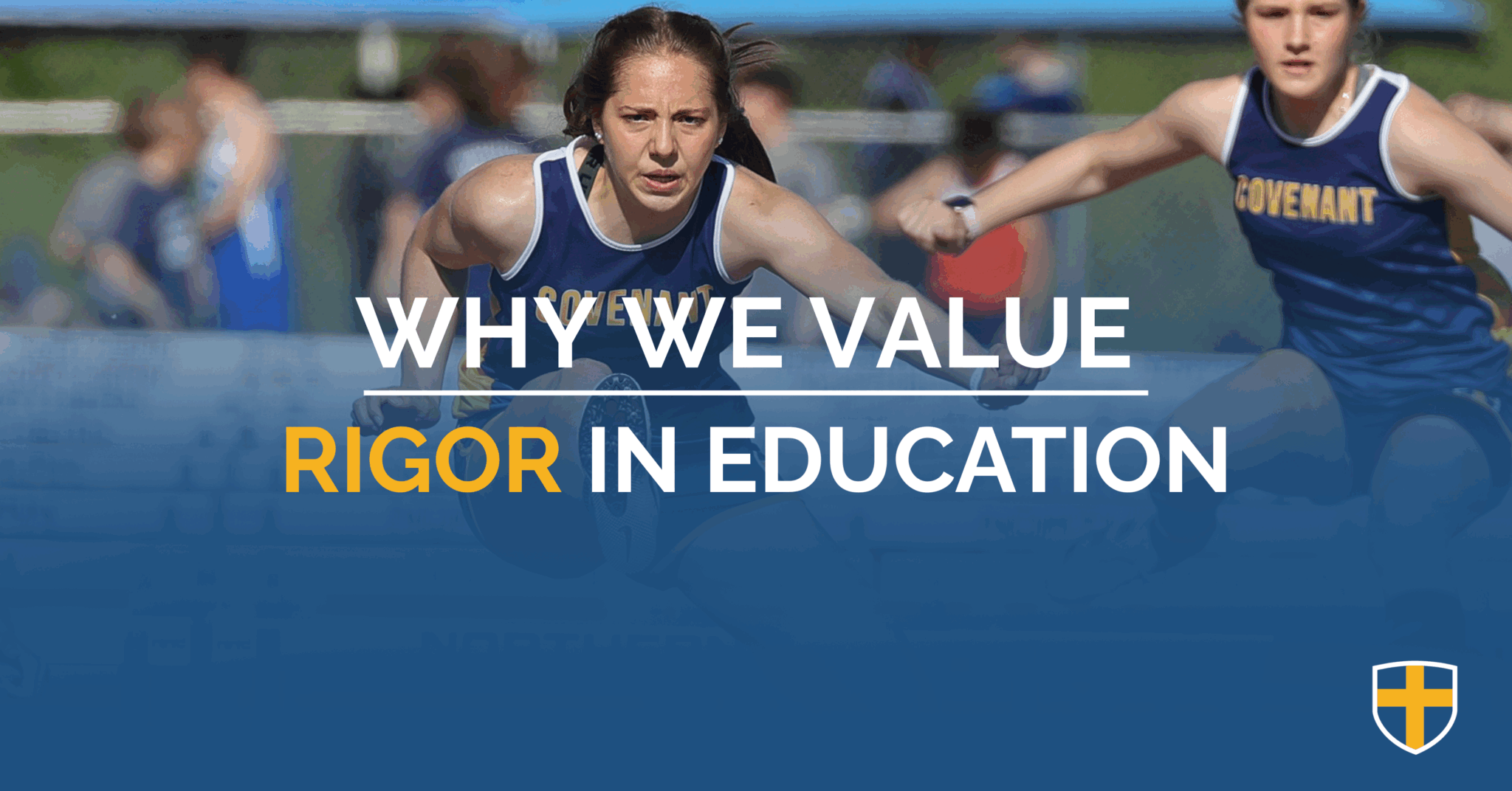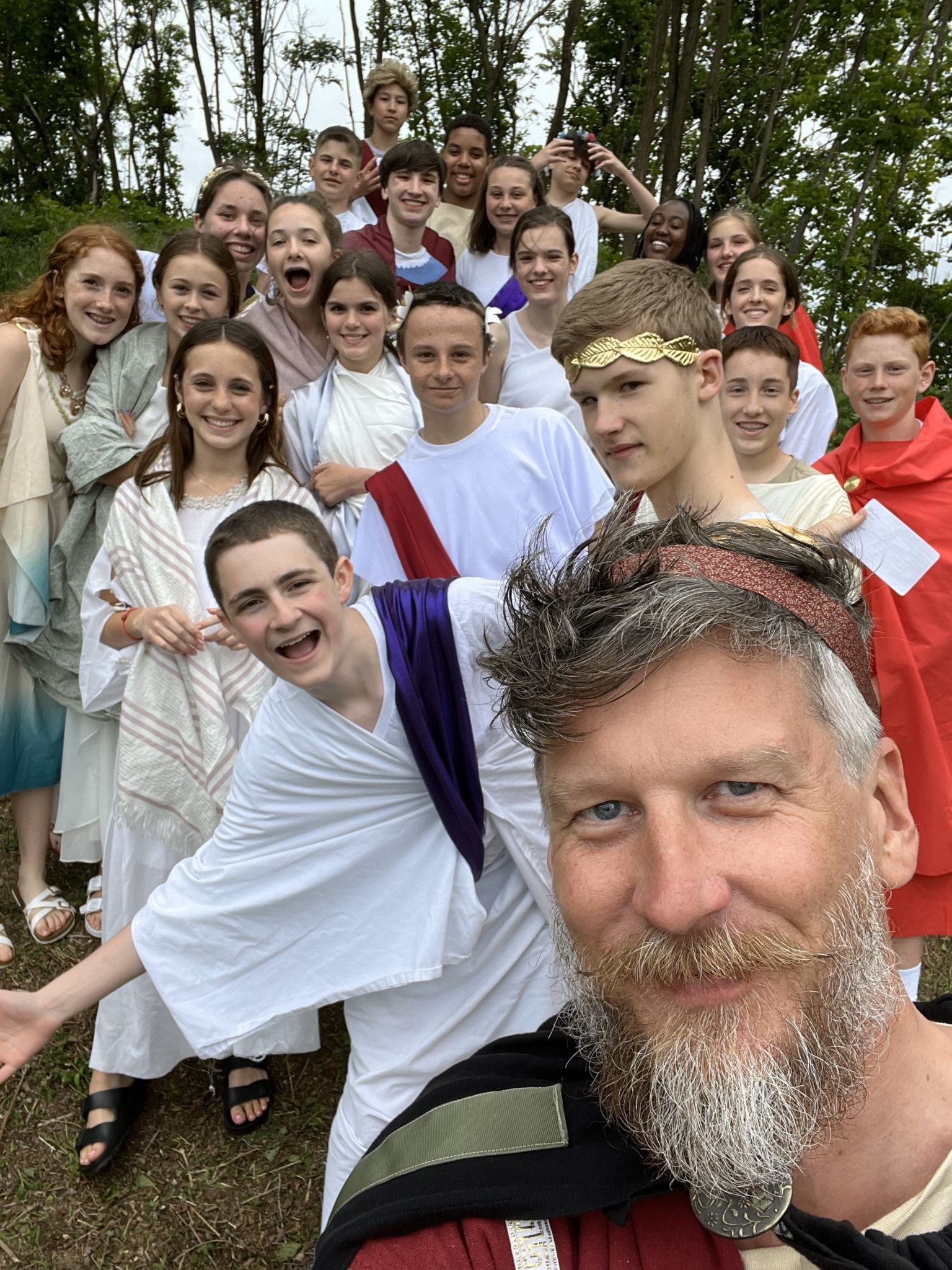This May, more than a few students will stand up before their peers, parents, teachers, and community to give speeches. Half of them will speak for only a few minutes, the other half nearly twenty. Half have a PowerPoint presentation prepared, half only a notecard. But perhaps the most glaring difference is that while half of them are dressed in their Covenant best blazers, the other half have donned togas and swords.
Forum et Agora and the Senior Thesis are much anticipated, though perhaps also much anguished over, landmarks along the journey of a Covenant student. During Forum et Agora, eighth graders assume Greek and Roman characters and give speeches that they have spent months preparing in Rhetoric and History. The Senior Thesis presentation is the culmination of a year’s worth of research, thinking, and writing. But while the climb is certainly not always an easy one, the view from the summit is incredible.
Looking down from the hilltop as a Roman orator or across the gym from the thesis podium, a student sees off in the distance his first show-and-tell in kindergarten and his first book-in-a-bag report in fourth grade. Perhaps he sees himself as the duck in a production of Peter and the Wolf and again as Enkidu in the seventh grade’s Epic of Gilgamesh. Not so far in the distance is his Renaissance painting and a science fair project display board. Drifting through the air, he can still hear echoes of his teacher’s oft-repeated words “hard things are good things,” and maybe now he believes them.
During Covenant’s “300 Breakfasts” initiative, parents were asked what traits they pray their children have upon graduation. One of the most common answers was “courage.” Surely, there are not many better examples of courage in a student than achieving a Forum et Agora speech or a Senior Thesis presentation. And yet while these are certainly mountain-top moments, they are far from independent, because the Covenant journey is not about the achievement but about the character that is built and shaped along the way to make courageous students. When they put away the violin, fold up the basketball uniform, and turn in the last exam, they will know that they are capable of doing hard things and doing them well for the rest of their lives because, surely, family, work, and the Christian calling will provide no shortage of hard things in the future. And while these accomplishments may seem to be an end-result, the true fruit of this labor will be to someday hear the words of the Father, “Well done, good and faithful servant, well done.”




